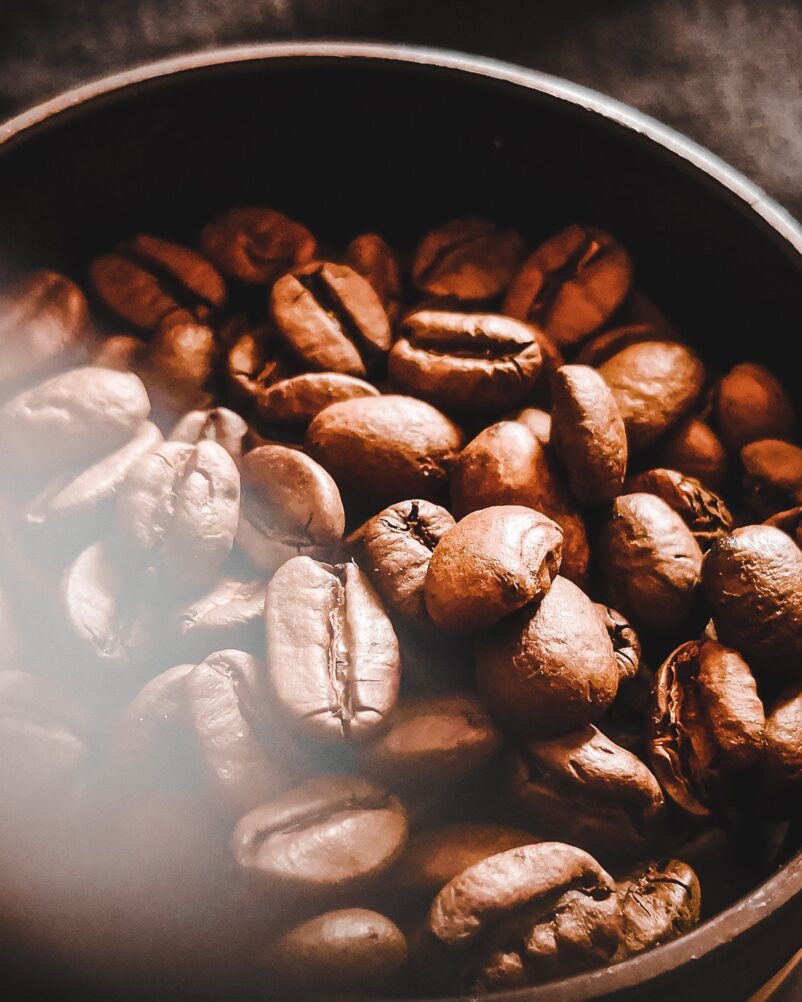
So you’ve got a lovely bag of freshly roasted coffee beans on your hands. You’ve nailed the grind, the timing, and the ratio, and the result is an unbelievably tasty cup of coffee. Now you want to ensure you have as much time as possible to savour that freshly roasted coffee.
But how do you keep the pleasure going? How can you keep these priceless heirlooms from becoming stale, oxidized, and, dare we say, rancid?
In the past, freezing coffee beans for storage has been a contentious matter in the coffee industry, but in recent years, freezing coffee beans has become widely accepted as a smart concept. Why is it a good idea to freeze coffee beans, and how should you go about freezing them? Is it true that freezing your coffee beans improves the flavor of your cup of coffee?
What are the benefits of freezing your coffee beans?
It is a question that I have been asked on a number of occasions, “Can you freeze coffee?” There are two primary reasons why you would wish to freeze your coffee beans after they have been roasted: one is to prevent them from becoming stale; and two is to prevent them from becoming stale.
The flavor is better after it has been freezed
Making food into ice cubes is an excellent technique to preserve its flavors and prevent it from going bad. All of us are aware that if you make a batch of bolognese sauce today and freeze it, it will taste the same (or even better!) next week.
So what makes you think it would work with coffee as well?
One of the problems with coffee is that, once you have roasted your coffee, it will begin to age (i.e., lose its desirable flavors), and as time passes, it will begin to taste duller and more monotonous. If you leave it for a few more days or weeks, you will begin to taste stale flavorings (=something harsh and nasty), which is caused by the oils in the coffee becoming rancid. Accordingly, under ideal circumstances, you would be able to brew the coffee within 3-14 days of roasting, but we all know that this isn’t actually possible. As a result, you’ll need a means to keep coffee fresh for longer lengths of time.
The best method for storing coffee for extended periods of time is to freeze it. Freezing coffee beans helps to preserve the flavors of the beans and keeps the coffee in the same condition as it would be a few days after roasting it. Will it have the same flavor as freshly roasted coffee beans? Most likely not, but it will be very close.
Freezing improves the quality of grinding
I apologize in advance for getting a little technical, but please bear with me as I attempt to keep things as easy as possible. Consequently, when you grind coffee, you will essentially end up with three types of grounds: fines (which are extremely small particles), boulders (which are extremely large particles), and ideal sized particles. Basically, the better the grinder, the less fines and boulders you will receive, and those two things are nearly always detrimental to the quality of your brewed coffee. Fines will over-extract very easily, whereas boulders will under-extract very easily, depending on the situation.
Freezing the beans and grinding them “frozen” will result in more uniform grind size particle distributions (i.e., you will get fewer fines and boulders) and will also result in finer grind size particle distributions (i.e., you will get less fines and boulders). Extraction will be increased as a result of both of these variables, allowing you to extract more flavor from your coffee while also extracting it more evenly. This will significantly improve the sweetness of your coffee while decreasing the bitterness and acidity.
Simply explained, grinding coffee while frozen will improve the flavor of your coffee!.
What method should you use to freeze your coffee beans?
There are really only two conditions for efficiently freezing coffee beans: the beans must be transferred to an airtight container, and there must be no air or as little air as possible present in the container. Vacuum sealing or some form of tube or container are your only alternatives, so choose wisely. Vacuum sealing necessitates the purchase of certain plastic “bags” as well as the purchase of a vacuum sealer, which makes this option a little more expensive.
I’ve used these tubes to freeze my coffee in the past, and they work great. They are quite convenient because you can fit approximately 20 grams of coffee in them (depending what type of coffee 18-22 grams).
The key is to pack as much air as possible into the tubing. First, I fill the tube with beans and seal it, but it isn’t fully full because there is some air between the beans and they could fit even tighter if the tube were completely filled. So I give the tube a good shake to get the beans even tightly together and then fill in the gaps with the remaining beans.
Of course you want to know what kind of coffee you’ve frozen, so write down the details from the coffee on a piece of masking tape or painter’s tape. To be even more specific, you may write down the ideal formula that you have used so that it will be ready in two years when you take the coffee out of the freezer, if you so desire.
How long does it last in the freezer before it goes bad?
It’s a rather long sentence. So long as you don’t have to be concerned about it because, more than likely, you won’t keep it for an extended period of time that something bad happens. According to some research, a day spent at ambient temperature is equivalent to almost 200 days spent in a freezer setting.
Probably at least two years, and in fact, I have begun to build up my own coffee collection in my freezer over the past few months. When I return in three years, I’d like to try my competition coffee from 2021 and see if it’s still as excellent as it is today.
